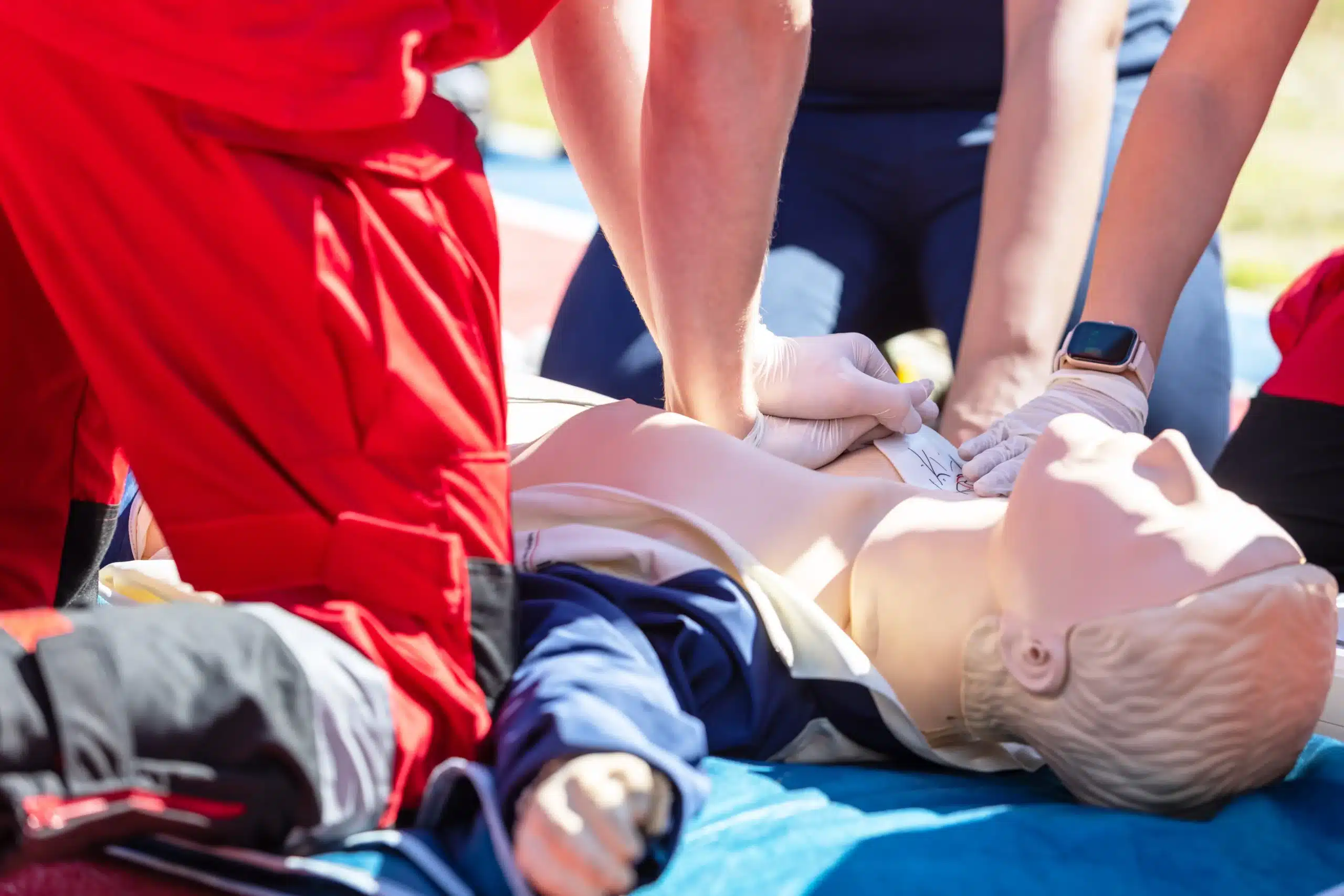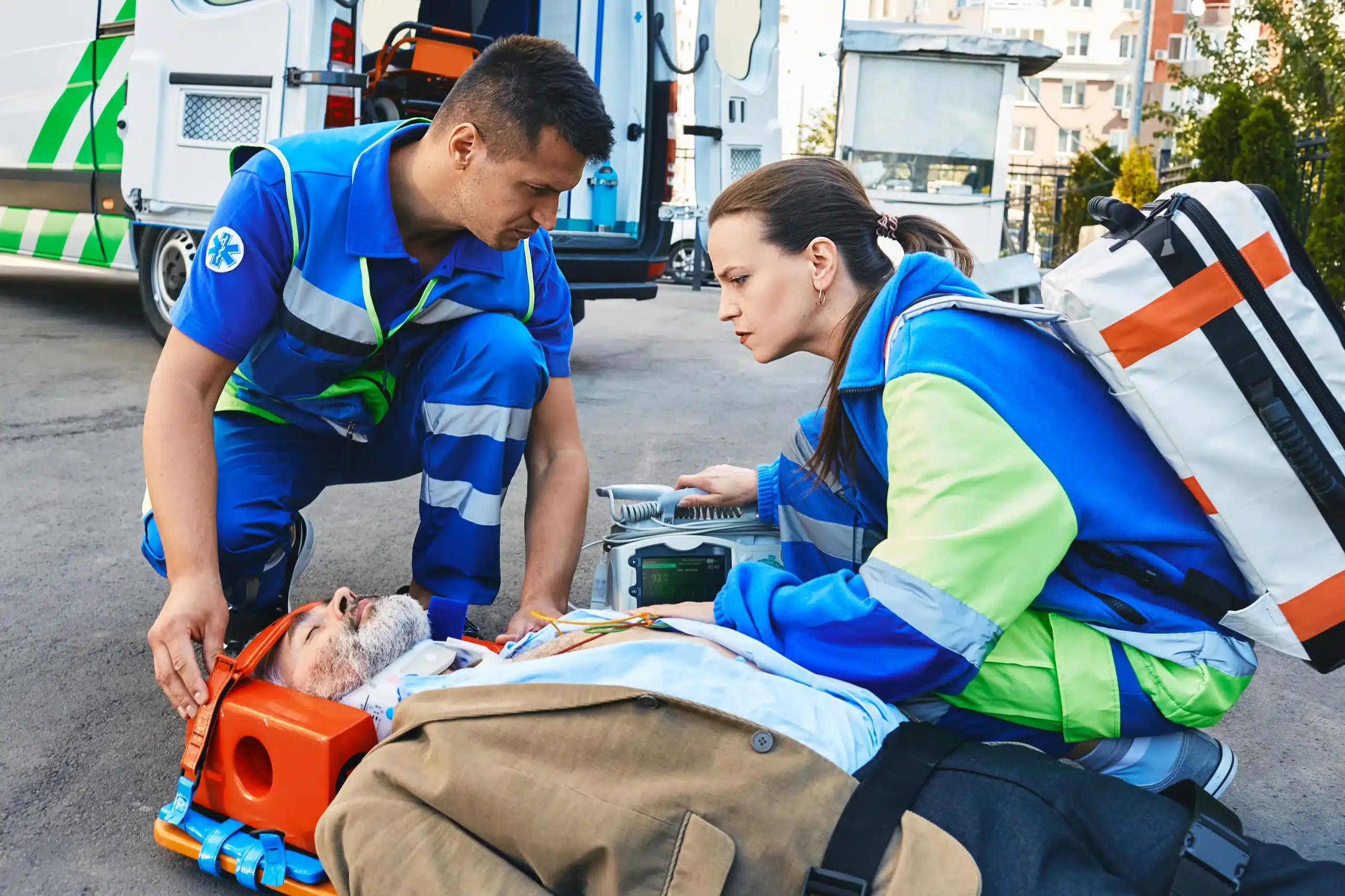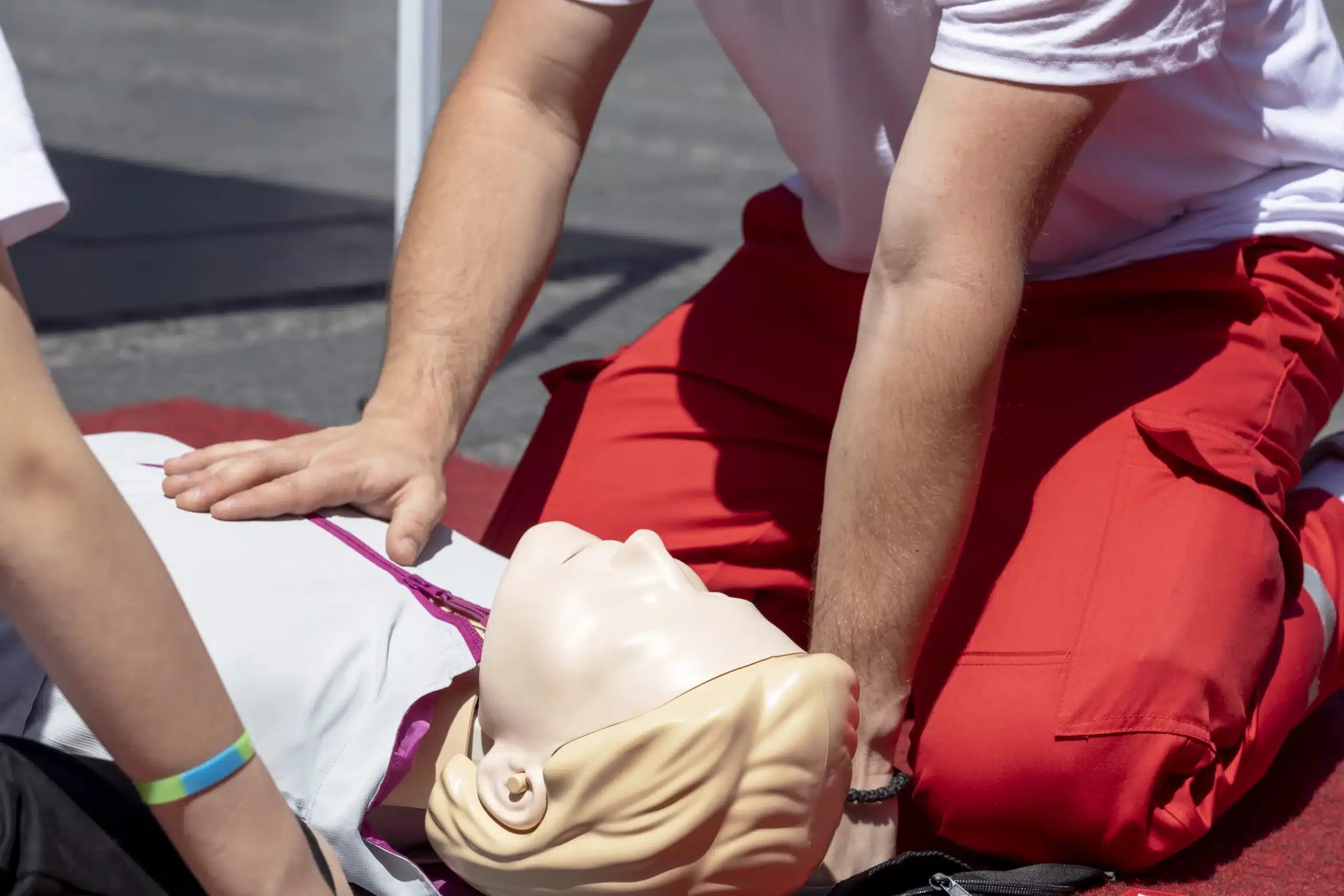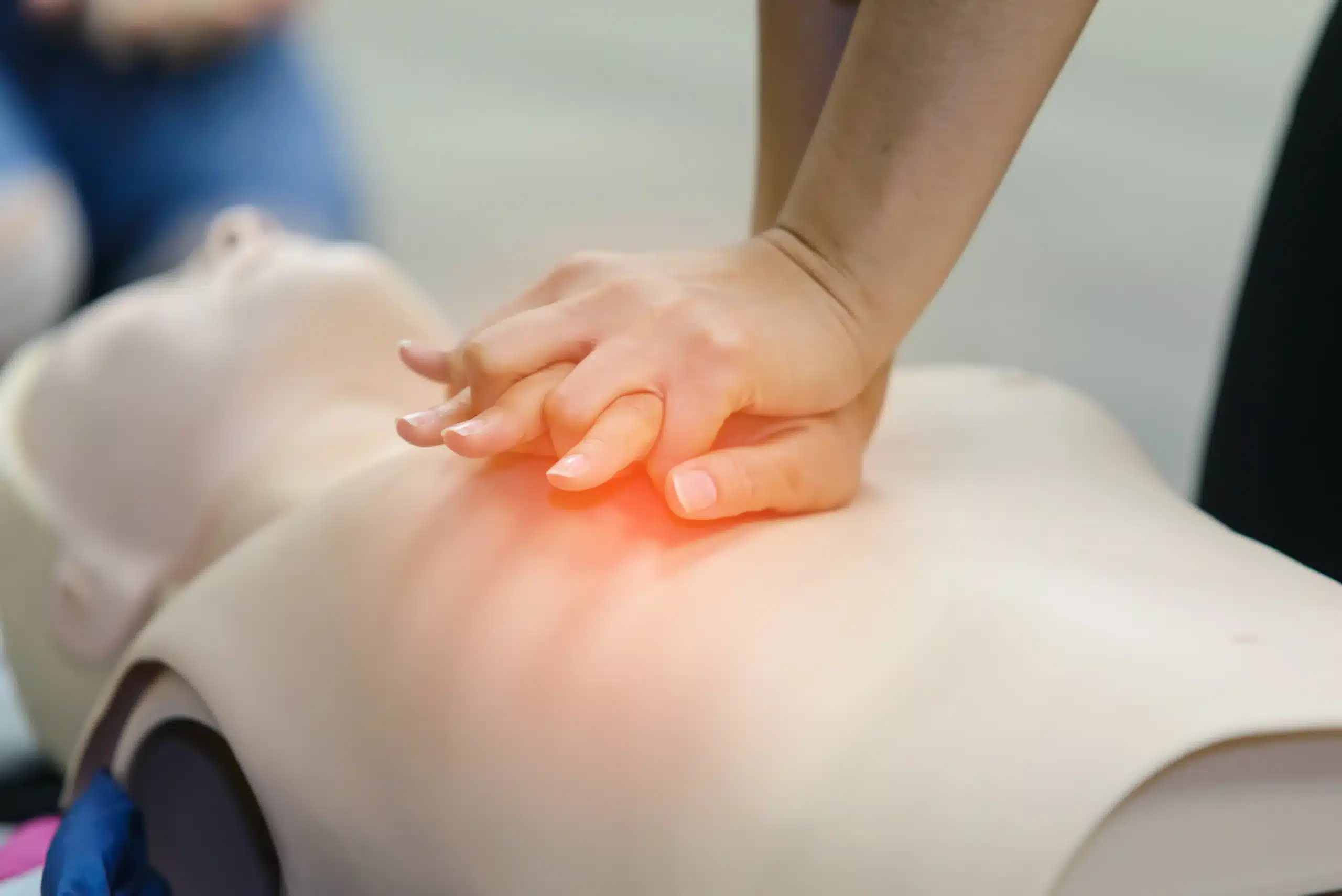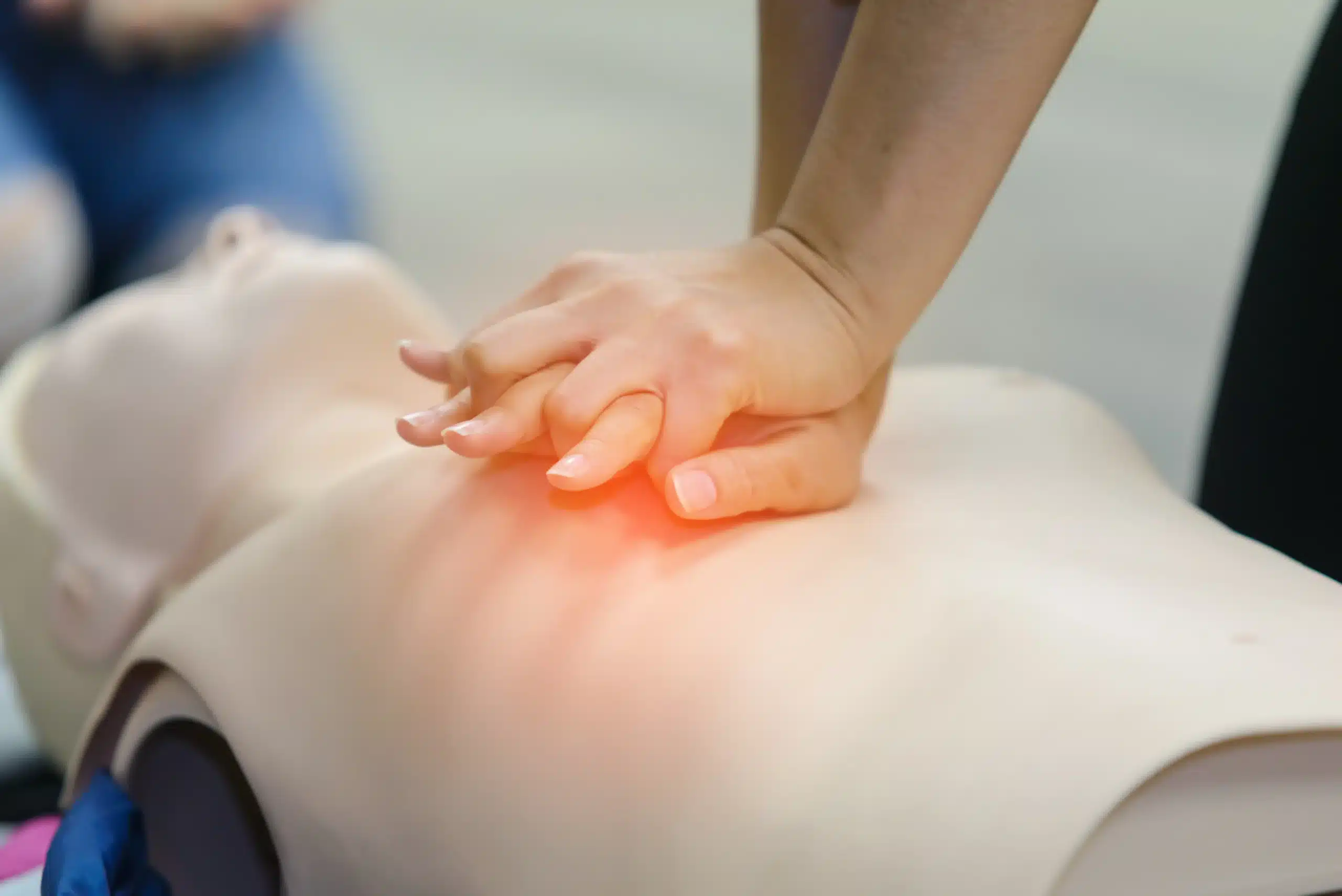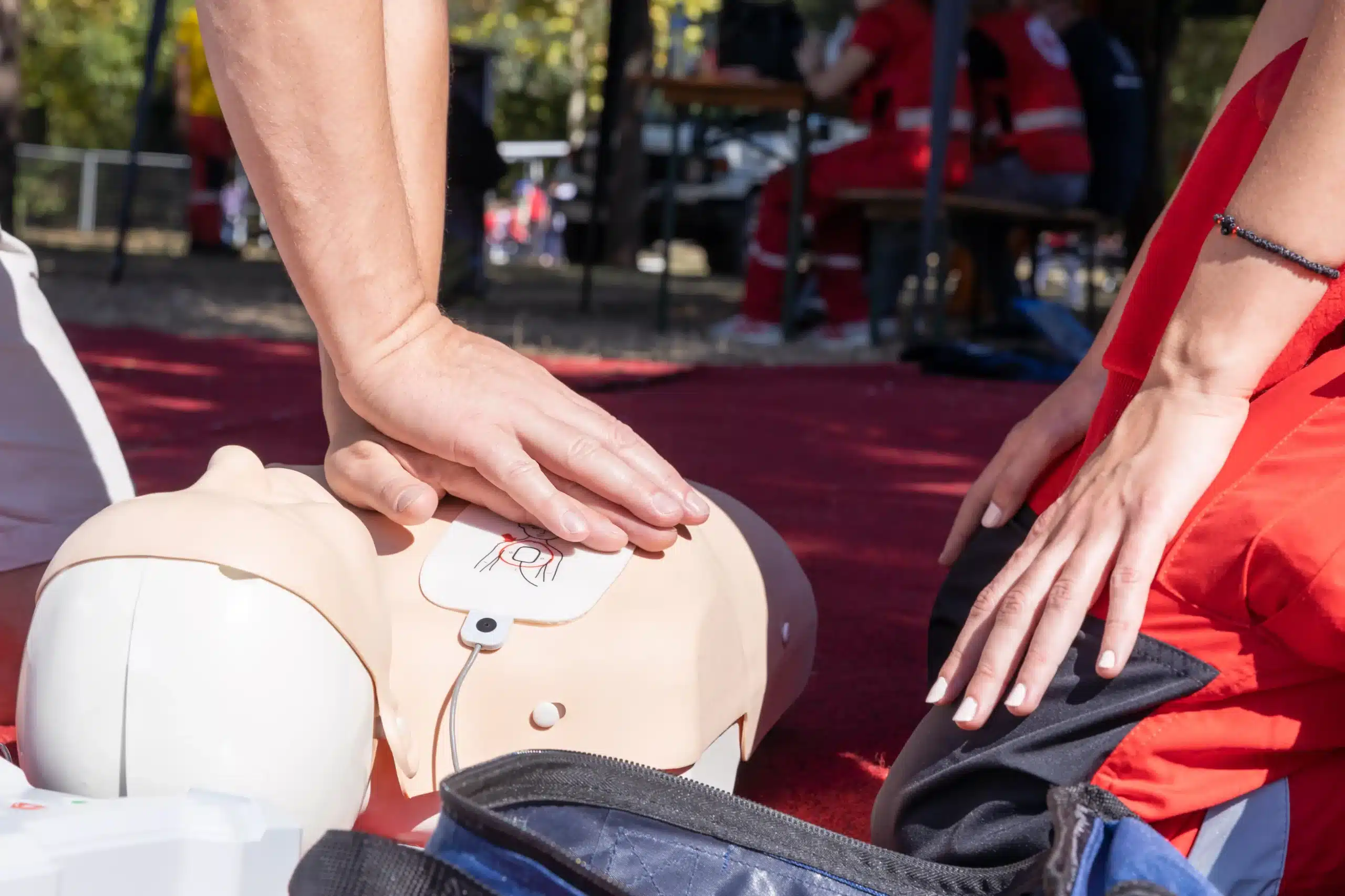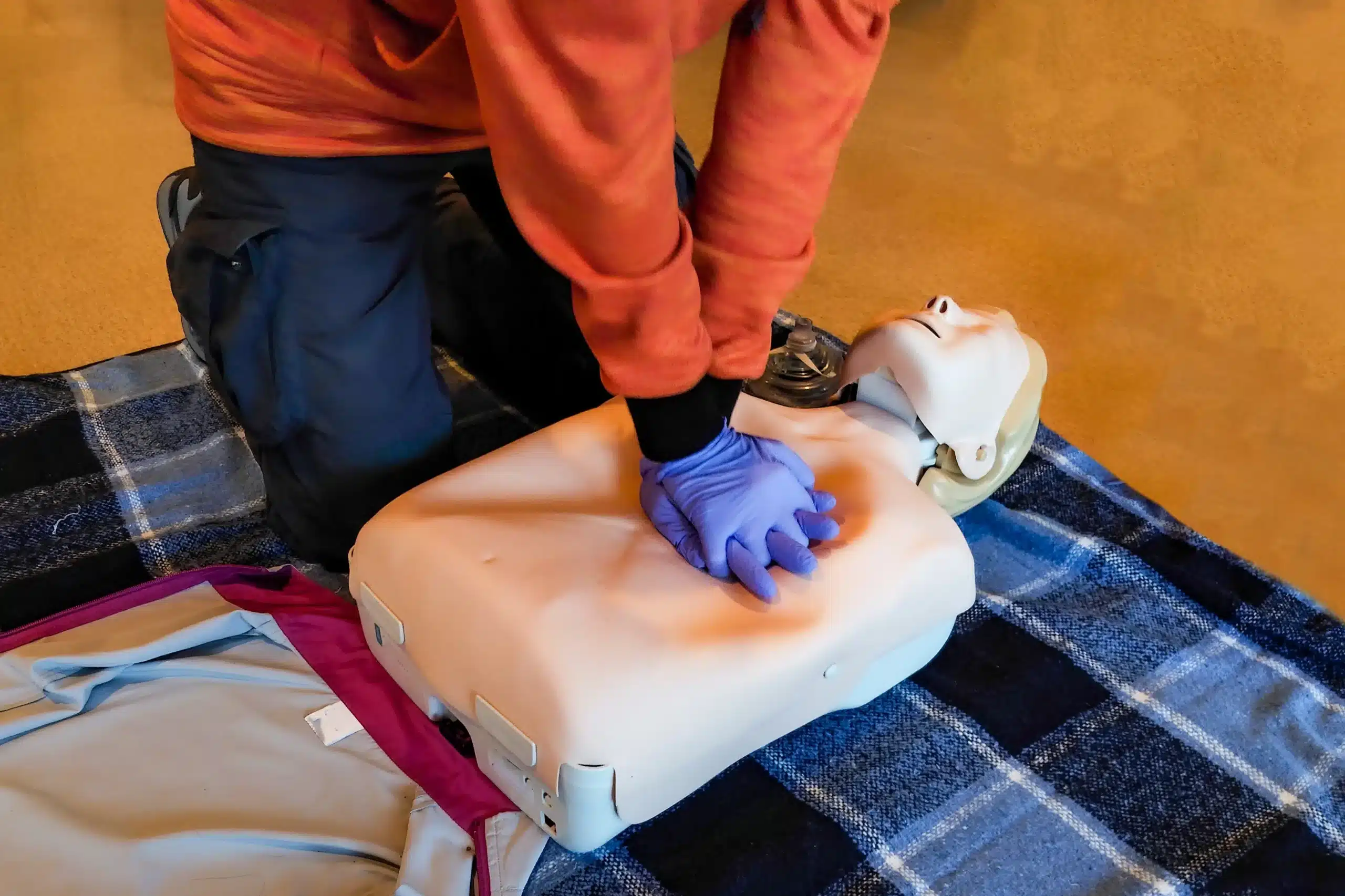Are you a healthcare professional in Menlo Park dedicated to providing the best possible care for young patients? Pediatric Advanced Life Support (PALS) certification is more than just a credential—it’s a commitment to excellence in pediatric emergency care. This comprehensive training empowers healthcare providers with the skills and confidence to handle life-threatening situations involving infants and children. This article will delve into the key aspects of pediatric advanced life support in Menlo Park, exploring the course content, available training options, and the importance of choosing a qualified instructor. We’ll also discuss the long-term benefits of PALS certification, including improved patient outcomes and enhanced career opportunities.
Key Takeaways
- PALS certification equips you with essential skills for pediatric emergencies: This specialized training empowers you to confidently manage life-threatening situations in infants and children, leading to improved patient outcomes. Prioritize courses with hands-on practice and realistic simulations.
- Select a PALS course that aligns with your learning needs: Consider factors like instructor experience, course content, and format (traditional, blended, or simulation-based). Ask potential providers about their teaching methods, class size, and available resources.
- Maintain your PALS certification through continued learning: Regularly review resources, connect with local support networks, and renew your certification every two years. This ensures you stay up-to-date with the latest guidelines and best practices in pediatric emergency care.
What is Pediatric Advanced Life Support (PALS)?
What is PALS and why is it important?
Pediatric Advanced Life Support (PALS) is specialized training for healthcare providers, teaching them how to respond to life-threatening emergencies in infants and children. It goes beyond basic life support, focusing on the critical first few minutes of intervention. The course covers various emergencies, from cardiopulmonary arrest and shock to respiratory distress. PALS emphasizes early recognition and treatment, giving providers the skills to stabilize a child and improve their survival chances. This training is essential for anyone working in pediatrics or regularly interacting with children in medical settings. It empowers healthcare professionals to confidently manage pediatric emergencies, ultimately leading to better patient outcomes. Our BLS course offers a solid foundation in basic life support techniques.
Key skills and techniques taught in PALS
PALS courses cover essential skills, including managing respiratory distress, shock, and cardiac arrest in children. Participants learn to assess a child’s condition quickly, perform effective CPR, and administer medications. Interpreting pediatric electrocardiograms (ECGs) and identifying different heart rhythms is a key component. This skill is crucial for diagnosing and treating potentially life-threatening arrhythmias. The program also emphasizes teamwork and communication during resuscitation. Effective collaboration among healthcare providers is essential for coordinating care and ensuring the best possible outcome. PALS training also covers using specialized equipment like defibrillators and airway management devices designed for children. For those interested in advanced cardiac life support, our ACLS page provides further information.
PALS Training Courses in Menlo Park
Finding the right Pediatric Advanced Life Support (PALS) course is crucial for healthcare providers responsible for infants and children. Menlo Park and the surrounding area offer several options to suit different learning styles and schedules. Let’s explore some of the leading providers:
Safety Training Seminars
Safety Training Seminars offers comprehensive PALS training, including BLS, ACLS, and PALS certification. They understand the scheduling challenges healthcare workers face and aim to make training accessible with daily classes in over 60 cities and discounts for groups. Their commitment to low prices makes them a practical choice.
Stanford Medicine
Stanford Medicine’s PALS Provider course, offered through their American Heart Association Training Center, provides a robust curriculum aligned with the latest AHA guidelines. Participants can earn continuing education credits, and the program often integrates online components, like the BLS HeartCode module, for a blended learning experience.
CPR Plus
CPR Plus focuses on equipping healthcare providers with practical skills for managing pediatric emergencies. Their PALS training emphasizes a step-by-step approach to pediatric cardiac arrests, airway management, and other critical interventions. This hands-on training style helps build confidence for real-world scenarios.
American Heart Association Training Centers
Several American Heart Association Training Centers in the Menlo Park area offer PALS courses. These courses adhere to the latest AHA science-based guidelines and result in the same AHA PALS Course Completion Card. The AHA provides resources and FAQs for those considering instructor-led PALS training.
In-Home CPR
For those seeking flexible scheduling, In-Home CPR brings PALS certification classes directly to your home or workplace. They serve the San Francisco Bay Area and Sacramento, offering classes seven days a week, including evenings, making it easier to fit training into a busy life. This convenient option is ideal for groups or individuals who prefer a personalized learning environment.
PALS Course Content and Structure
Understanding the content and structure of a Pediatric Advanced Life Support (PALS) course helps you know what to expect and choose the best training for your needs. A well-rounded PALS course covers essential components, provides hands-on practice, and may offer flexible learning options.
Essential PALS training components
PALS courses cover a range of topics crucial for managing pediatric emergencies. The curriculum typically includes pediatric assessment, covering how to quickly and accurately evaluate a child’s condition. Respiratory and shock management are also key components, teaching providers how to address breathing difficulties and circulatory problems. The course also addresses rhythm disturbances, equipping participants with the skills to identify and manage abnormal heart rhythms in children. Effective resuscitation teamwork is another vital element, emphasizing communication and coordination during emergencies. These core components ensure healthcare providers can confidently respond to various pediatric emergencies. Safety Training Seminars offers comprehensive PALS training covering these essential elements.
Hands-on practice and simulations
Hands-on practice and simulations are integral parts of effective PALS training. These practical exercises allow participants to apply their knowledge and skills in realistic scenarios, building confidence and competence. Simulations often involve mock emergencies, giving providers the opportunity to work through various situations and make critical decisions under pressure. This immersive learning experience helps bridge the gap between theory and practice, better preparing healthcare professionals for real-world pediatric emergencies. For those in the Menlo Park area, Safety Training Seminars emphasizes this practical approach.
Blended learning options
Blended learning offers flexibility for those seeking PALS certification or recertification. This approach combines online learning with in-person skill sessions. The online component allows participants to study the theoretical material at their own pace and convenience, while the in-person sessions provide crucial hands-on practice and interaction with instructors. This format can be particularly beneficial for busy professionals who need to balance work and training commitments.
Customized training locations
Many PALS providers offer training at customized locations, catering to the specific needs of groups or organizations. This can include bringing the training directly to a hospital, clinic, or other workplace. Customized training locations offer convenience and minimize disruption to workflows, making it easier for teams to participate together. This option can also be cost-effective for larger groups. Contact Safety Training Seminars to discuss bringing a PALS course to your location.
Cost of PALS Courses in Menlo Park
Average Pricing and Discounts
Pediatric Advanced Life Support (PALS) courses in Menlo Park typically cost around $300. However, discounts might be available. Some Stanford employees may have their PALS training covered, so check with your employer about potential assistance or reimbursement programs. Safety Training Seminars offers a low price guarantee and frequently runs special promotions, so visiting their website for current deals is worthwhile.
Group Rates and Promotions
Coordinating training for a group of colleagues? Inquire about group discounts. Many providers, including Safety Training Seminars, offer reduced rates for group bookings. This can be a smart way to get your entire team PALS certified. Also, explore options like departmental funding, sometimes available for larger groups of healthcare professionals.
Return on Investment for Healthcare Professionals
Think of PALS training as a career investment. The specialized skills gained in a PALS course directly improve emergency response and patient outcomes. Confident, well-trained providers are invaluable to any medical team, and PALS certification demonstrates your commitment to high-quality care.
PALS Instructor Qualifications
Choosing the right PALS course is crucial for your career, and the instructor’s qualifications play a big role in the quality of training you receive. Here’s what to look for:
Instructor Medical Background and Experience
PALS instructors should have a strong medical background. This ensures they understand the nuances of pediatric physiology and can effectively teach the skills needed in emergencies. Look for instructors with experience in pediatric critical care or emergency medicine. This practical experience translates into real-world insights that enrich the learning process. PALS training equips healthcare providers with essential skills, and a knowledgeable instructor is key to mastering those skills. Their experience adds immense value to the training.
American Heart Association Certification
Ensure your PALS instructor is certified by the American Heart Association (AHA). This certification guarantees they’re up-to-date with the latest guidelines and practices in pediatric advanced life support. The AHA regularly updates its guidelines to reflect advancements in medical science, ensuring you receive the most current and relevant training. This is essential for providing the best possible care to pediatric patients.
Teaching Skills and Methods
A knowledgeable instructor isn’t enough; they also need to be an effective teacher. Look for PALS courses that incorporate interactive teaching methods, hands-on practice, and realistic simulations. Instructor-led courses often use a systematic approach to teach assessment, recognition, and stabilization techniques. These methods create a more engaging learning environment and help students retain information. A good instructor will create a supportive learning environment where you feel comfortable asking questions and practicing your skills. These techniques are crucial for effective pediatric care in emergencies.
Unique Features of Menlo Park PALS Training
Pediatric Advanced Life Support (PALS) training in Menlo Park offers distinct advantages for healthcare providers seeking certification or recertification. Here’s what sets these courses apart:
Flexible Schedules
Juggling work, family, and continuing education can be a challenge. Menlo Park PALS courses recognize this by offering flexible scheduling options to accommodate busy professionals. Classes are available seven days a week, including evening and weekend options, making it easier to find a time that fits your schedule. This commitment to accessibility ensures healthcare providers can pursue this vital training without major disruptions. For the most up-to-date schedules, check directly with your chosen provider, such as Safety Training Seminars.
Focus on Practical Skills and Teamwork
Menlo Park PALS courses prioritize hands-on training and teamwork. These courses go beyond textbooks, providing participants with opportunities to practice essential skills in simulated emergency scenarios. This practical approach builds confidence and competence, ensuring healthcare providers can effectively respond in real-world situations. The emphasis on teamwork reinforces the importance of coordinated responses during pediatric emergencies. Sites like Eventbrite often feature course descriptions highlighting these practical components.
Continuing Education Credits
Many Menlo Park PALS courses offer continuing education (CE) credits. Some providers, for instance, offer 14 California Board of Registered Nursing (BRN) continuing education credits upon successful course completion. These credits are essential for maintaining licensure and demonstrating a commitment to ongoing professional development. Earning CE credits through PALS training allows healthcare providers to stay current with advancements in pediatric emergency care while fulfilling licensing requirements. Confirm the number of CE credits offered with your chosen training center.
California BRN Recognition
Recognition by the California BRN is a hallmark of quality for PALS training in Menlo Park. This recognition signifies that the course content and instruction meet the standards set by the BRN. Choosing a BRN-recognized PALS course ensures healthcare providers receive high-quality training aligned with state requirements and best practices. This recognition also adds value to your certification, demonstrating your commitment to professional excellence. Information about BRN recognition is often available on the provider’s website or through the BRN website.
Prepare for and Maintain PALS Certification
Prerequisites and Study Materials
Before you enroll in a Pediatric Advanced Life Support (PALS) course, you’ll need to complete a pre-course self-assessment. This helps gauge your baseline knowledge and identify areas where you might need extra focus. Once you register for a PALS course at least ten business days prior to the start date, you’ll receive a comprehensive manual. Make sure to review this manual thoroughly, as it’s your primary study resource and essential for understanding the course content.
Tips for Successful Completion
Give yourself the best chance of success by registering at least ten business days before your chosen course date. This ensures you receive your study manual with plenty of time to prepare. Complete the online pre-course self-assessment before attending the in-person training. If you feel you need a refresher on basic life support skills, consider completing the optional BLS HeartCode module beforehand, especially if it’s been a while since your last BLS training.
Renewal Requirements
Your PALS certification is valid for two years. To maintain your credentials and stay current with the latest pediatric emergency care practices, renew your certification before it expires. This demonstrates your commitment to professional development and ensures you’re equipped to provide the highest quality care.
Continuing Education Options in Menlo Park
PALS training in Menlo Park offers valuable continuing education opportunities, providing 14 California BRN continuing education credits. This specialized training equips healthcare professionals with the skills to manage pediatric medical emergencies, contributing to a stronger emergency response system. Learn more about how PALS training enhances emergency response for pediatric patients.
Choose the Right PALS Course in Menlo Park
Finding the right Pediatric Advanced Life Support (PALS) course is crucial for healthcare providers working with children. With several options in Menlo Park, carefully evaluate your choices to ensure you receive high-quality training that meets your needs and prepares you to handle pediatric emergencies.
Factors to consider when selecting a provider
When choosing a PALS provider in Menlo Park, consider these key factors:
- Accreditation and Affiliation: Verify the course is accredited by a recognized organization like the American Heart Association (AHA). Check if the provider is affiliated with reputable institutions, such as hospitals or medical centers, often indicating a commitment to high standards and up-to-date materials. Safety Training Seminars offers AHA-certified courses.
- Instructor Expertise: Look for instructors with extensive pediatric emergency care experience. Their real-world knowledge can enrich the learning experience and provide valuable insights. Reading reviews and testimonials can offer a glimpse into an instructor’s teaching style.
- Course Content and Delivery: Ensure the course covers essential PALS components, including pediatric airway management, rhythm recognition, and effective team dynamics. Consider whether you prefer a traditional classroom, blended learning, or a simulation-based approach. RQI classes offer a flexible learning experience.
- Class Size and Location: Smaller classes often allow for more personalized instruction and instructor interaction. Choose a convenient and accessible location to minimize travel time. CPR classes in Palo Alto serve surrounding areas like Redwood City and Menlo Park.
Questions to ask before enrolling
Before committing to a PALS course, ask these important questions:
- What is the total cost? Inquire about included materials, certification fees, and potential retake costs. Compare pricing and look for discounts, such as those for group CPR training. Check if your employer offers reimbursement. Our low price guarantee ensures competitive pricing.
- What is the course schedule and format? Confirm the dates, times, and duration. Determine if it’s offered in a blended learning format, combining online modules with in-person skills sessions—a great option for busy professionals.
- What are the instructor’s qualifications? Ask about their medical background, pediatric emergency care experience, and AHA instructor certification. A qualified instructor significantly impacts your learning.
- What support is offered after the course? Inquire about online resources, refresher materials, or ongoing support. This helps maintain your skills and prepare for recertification. BLS and ACLS certifications are also important for healthcare providers.
Impact of PALS Training on Pediatric Care
Improved Patient Outcomes and Team Communication
PALS training gives healthcare providers the skills and knowledge to respond effectively to pediatric emergencies. The training enhances their ability to interpret pediatric electrocardiograms (ECGs) and identify pediatric arrhythmias, which is crucial for timely intervention. Strong PALS training also emphasizes effective communication, leading to better teamwork during critical situations. Clear and efficient communication helps teams coordinate their efforts seamlessly, improving patient outcomes. This coordinated response is especially vital during pediatric emergencies, where seconds can make a difference. AHA PALS provides healthcare providers with the tools and strategies to manage pediatric cardiac arrest, including recognizing rhythms, initiating CPR, and using advanced life support interventions like defibrillation and medication administration. These skills directly translate to improved patient outcomes by increasing the chances of survival and minimizing long-term complications. For more insights, explore resources like this article on mastering PALS for expert care.
Advancing Pediatric Emergency Care in the Bay Area
PALS certification is crucial for healthcare providers involved in pediatric care, directly impacting the quality of care they provide. Overcoming the challenges associated with PALS certification is essential for those working with children. PALS training helps healthcare professionals improve their skills in handling medical emergencies effectively and providing high-quality care to pediatric patients, ultimately raising the standard of pediatric emergency care in the region. This commitment to advanced training contributes to a higher standard of care for children in the Bay Area. Learn more about how PALS training improves emergency response. By investing in PALS training, the Bay Area strengthens its network of skilled professionals dedicated to providing the best possible care for its youngest residents.
PALS Training Resources in Menlo Park
Finding the right resources to support your PALS training is key to success. Whether you’re preparing for initial certification or recertification, Menlo Park offers a variety of tools and networks to help you master the skills necessary for providing high-quality pediatric care.
Online Study Materials and Practice Tests
Juggling work and life as a healthcare professional can be challenging. Thankfully, online PALS resources offer flexibility for busy schedules. Many providers offer blended learning programs that combine online coursework with in-person skills sessions. Online PALS courses cover the theoretical knowledge you need, making it easier to fit studying into your day. Some courses, like the PALS blended renewal program, offer a convenient way to recertify. You can often find practice tests and quizzes online to gauge your understanding and identify areas where you might need additional focus. Check if your provider offers a pre-course self-assessment or study manual, as mentioned on Eventbrite, to maximize your preparation.
Local Support Networks for Healthcare Professionals
Connecting with other healthcare providers in Menlo Park can provide invaluable support throughout your PALS journey. Local networks can offer guidance on navigating the certification process and overcoming common challenges. Sharing experiences and best practices with peers creates a strong foundation for professional growth. These networks can also offer additional resources, such as workshops or mentoring programs, to reinforce the skills learned in your PALS course, like those focused on pediatric airway management and cardiac arrest response highlighted by Cascade Training. Building these connections strengthens the overall quality of pediatric emergency care within the Menlo Park community.
Related Articles
- PALS Classes in Palo Alto, CA – Palo Alto CPR Classes
- BLS Certification in Palo Alto: Your Comprehensive Guide – Palo Alto CPR Classes
- CPR Renewal in Menlo Park: Your Guide – Palo Alto CPR Classes
- ACLS HeartCode in Palo Alto: Flexible Training Options – Palo Alto CPR Classes
- BLS, ACLS, PALS, CPR & First-aid Classes in Palo Alto, CA
Frequently Asked Questions
What is the difference between PALS and BLS?
BLS (Basic Life Support) teaches fundamental life-saving techniques applicable to anyone, while PALS (Pediatric Advanced Life Support) builds upon those skills with specialized training for healthcare providers responding to emergencies in infants and children. PALS delves deeper into pediatric-specific assessments, interventions, and team dynamics.
How do I choose the right PALS course in Menlo Park?
Consider factors like the instructor’s experience, the course format (traditional, blended, or simulation-based), and whether the provider is affiliated with reputable institutions. Also, think about class size, location, cost, and if they offer continuing education credits. Don’t hesitate to ask providers about their curriculum and post-course support.
What are the typical prerequisites for a PALS course?
Generally, you’ll need to complete a pre-course self-assessment and thoroughly review the PALS provider manual before attending the in-person training. Some providers might also suggest a BLS refresher course, especially if your certification is nearing expiration or you want to brush up on foundational skills.
How often do I need to renew my PALS certification?
PALS certification is valid for two years. To stay current with the latest guidelines and maintain your credentials, you’ll need to recertify before your current certification expires. Many providers offer renewal courses, sometimes in a blended learning format for added flexibility.
Why is PALS training important for healthcare professionals?
PALS equips healthcare providers with the specialized knowledge and skills to effectively manage pediatric emergencies. This training enhances teamwork, improves patient outcomes, and contributes to a higher standard of pediatric care. It also demonstrates a commitment to professional development and can be a valuable asset for career advancement.
